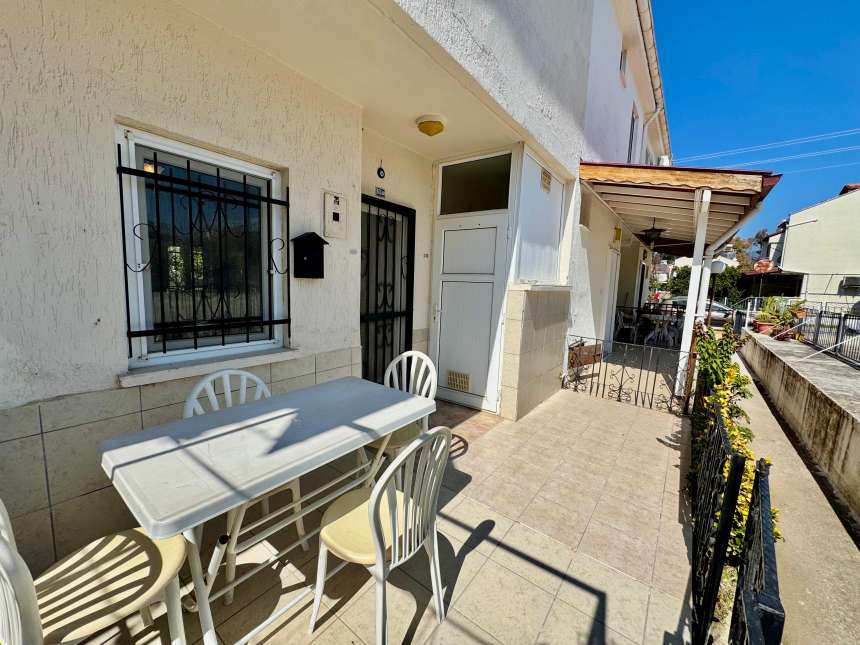Kayakoy
Eight kilometres from Fethiye town centre on the Mediterranean coast of Turkey, a small abandoned village receives ongoing international fame. Possibly, because of its ghost-like status, exploring Kayakoy is a popular tour for holidaymakers, and UNESCO added it to their World Friendship and Peace list.
Walking the deserted cobbled streets takes visitors across a green hillside scattered with derelict churches, schools and hundreds of houses. Apart from a few restaurants, a local mosque and basic overnight accommodation, the only sound coming from within the village is that of crickets buzzing loudly in the air. Generally, though tourists are amazed at the dwelling that is nothing like its former glory yet atmospheric with tales from the past.

History of Kayakoy
Previously also called Levissi in history, at the turn of the 20th century, life in Kayakoy was thriving. Greeks and Turks lived side by side and in general, daily routines were uninterrupted. Little did the population know that grave situations happening elsewhere in the world would have a reverberating effect on their lives and in the process, change them forever.
For most of World War 1, Greece stayed neutral. Eventually joining towards the end, they were on the winning side and following a defeat of the Ottoman Empire, awarded terrority on the Aegean coast and European Turkey. However, a young and former Ottoman army officer called Mustafa Kemal Ataturk was not prepared to accept the decision that likewise gave other areas of the country to British and French forces.
Together with many other generals, he started the Turkish War of Independence that pitted Turks against Greece. By the time 1924 came, any remaining Greeks in Turkey had to return to their homeland and vice versa. The end of Kayakoy was near. Returning Turks could not settle and deserted the village for other more lucrative areas. A series of small earthquakes over the following years marked the end of populated Kayakoy.

Kayakoy and Birds without Wings by Louis Bernieres
Kayakoy’s reputation received much focus and intrigue when in 2004, the author Louis Bernieres published a fictional love story set in the beginning half of the 20th century. Although Louis called the village Eskibahce, many locals, and admirers of his work quickly caught onto the similarities and insisted, the setting was, in fact, Kayakoy. Focusing on the lives of the two main characters of Ibrahim and Philothei, the village’s peaceful timeline goes from a peaceful existence to one troubled by World War 1, and religious differences of that time.
Kayakoy and The Water Diviner
Although already famous, Kayakoy’s international presence took a boost in 2014 when film star Russell Crowe descended on the village to film the final scenes of the water diviner. The fictional war drama focuses on a man whose missing sons fought in the real life battle of Gallipoli in 1918. After his wife’s suicide from grief, he vows to find out what happened to his offspring and travels to Turkey in the hope of following in their footsteps. Although two of his sons died in battle, he traces the third to be living in the remote village of Kayakoy. Traumatized by events in the war, the youngest son took shelter, rather than return shamefully to his family. Knowing that the Greco-Turkish War was in full effect, Russell Crowe’s character persuades his son to leave Kayakoy by telling him that without him, he has nothing to live for.

Save Kayakoy
In 2014, news emerged of a government incentive to auction off the ghost village of Kayakoy for private touristic development. Latching onto its worldwide fame, the plan was for hotels to be built along with restaurants and bars making it into a mini resort. Many people both Turks and foreigners expressed dismay since the deserted houses are already in extreme conditions and any modernization would distract from it historical appearance and significance.
Louis Bernieres himself, who wrote the book mentioned above, expressed concern in an interview with the UK Telegraph Newspaper
He said “The development could either be a wonderful rebirth, or a terrible act of vandalism, depending on how sensitively it is done. The town cannot take motor traffic, as the streets are too narrow, and putting in infrastructure might cause damage. The restorations should be as authentic as possible so that the former way of life is evident.”
After an online petition had been launched, assurances from the Turkish culture of ministry and tourism said any revamp would be in line with its historical past. As of yet, no work has actually taken place, but the future of the original ghost village of Kayakoy is uncertain.
How to Get to Kayakoy: From Fethiye town centre, small dolmus run regularly during summer to the entrance of the village. Alternatively, join a guided tour to find out more about its history and future plans.









